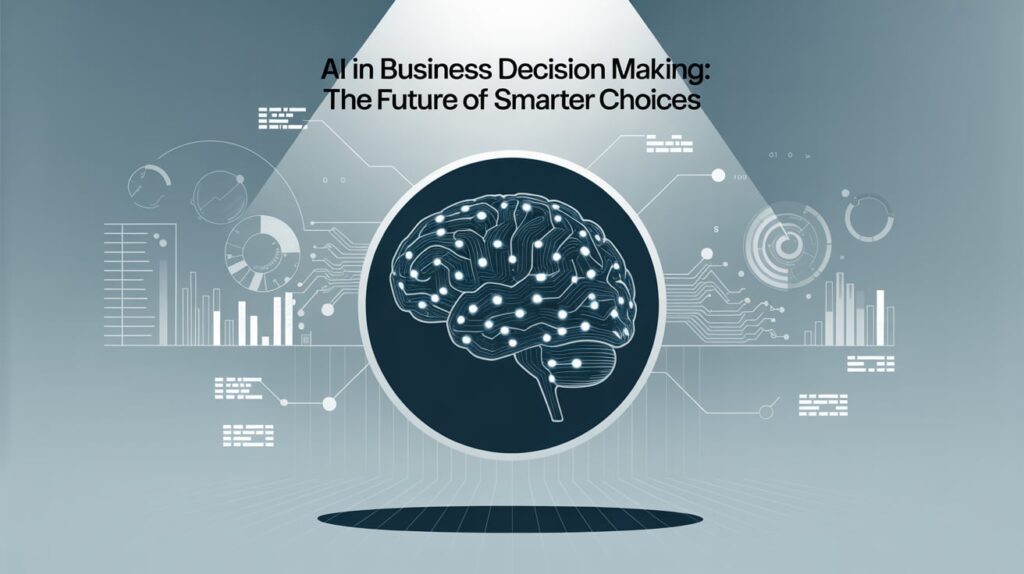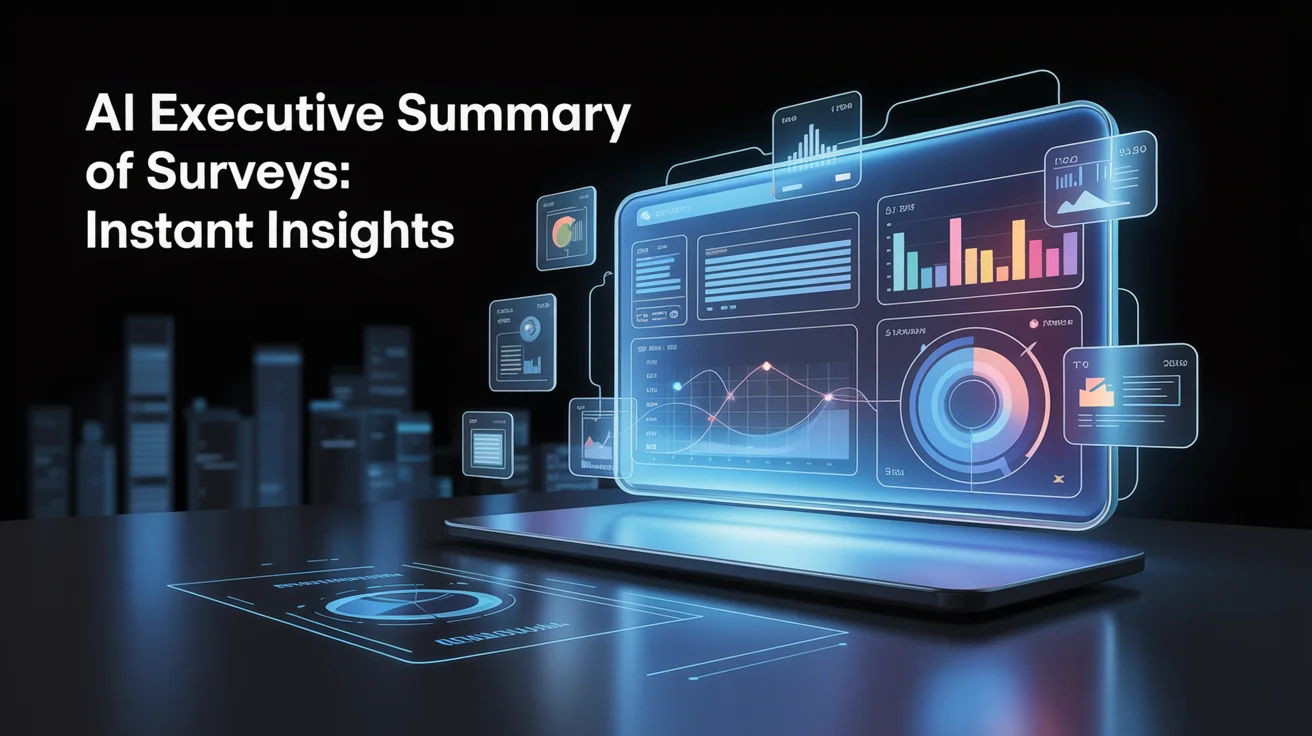In today’s data-driven world, decisions made on instincts alone are no longer enough. Companies are turning to more brilliant, faster, and more reliable solutions.
That’s where AI in business decision making comes into play. AI transforms how organisations analyse data, predict trends, and develop strategies.
This article explores how AI is redefining modern business strategies. We’ll examine its real-world applications, advantages, and tools and discuss how you can use AI responsibly in your business to improve decision-making outcomes.
Understanding AI’s Role in Business
Artificial Intelligence isn’t just about robots and automation; it’s about intelligent systems that learn and improve. In business, AI helps process massive volumes of data that humans can’t handle alone. It finds patterns, offers insights, and often suggests optimal decisions.
AI tools like machine learning, natural language processing, and predictive analytics are the backbone of this revolution. They are helping businesses shift from reactive to proactive decision-making.
Benefits of AI in Business Strategy
The integration of AI helps companies remain competitive in ever-changing markets. It improves efficiency, reduces human error, and saves valuable time. AI also allows businesses to explore new opportunities based on data insights that would otherwise go unnoticed.
Companies can now understand customer behaviour, anticipate market trends, and optimize internal processes. The benefits are measurable and scalable, from small startups to large enterprises.
AI Use Cases in Business Decision Making

AI is used across finance, marketing, operations, and customer service departments. It enables more innovative budgeting, improves hiring processes, and sharpens competitive analysis.
Here are a few specific examples:
- Predicting customer churn and suggesting retention strategies
- Recommending optimal pricing using real-time demand data
- Automating supply chain planning and logistics
- Enhancing cybersecurity by detecting threats early
- Segmenting audiences for personalized marketing campaigns
Key AI Tools Used for Decision Support
AI tools come in many forms, each offering unique capabilities. Some analyze historical data, while others forecast future trends. Businesses often combine several tools to get a more complete picture.
Let’s look at the top AI tools empowering business decisions:
- Machine Learning Platforms: Learn from data and improve over time
- Predictive Analytics Engines: Forecast future trends based on current data
- Natural Language Processing (NLP): Understand customer feedback and online reviews
- AI-Powered CRMs: Suggest next steps for sales and marketing teams
- AI Chatbots: Provide instant insights and improve customer support
These tools work behind the scenes to make real-time, data-driven decisions easier and faster.
How AI Improves Risk Management
AI in business decision-making also brings value to risk management. It helps businesses identify potential threats before they happen. Whether financial fraud, data breaches, or market crashes, AI can alert stakeholders in real time.
AI algorithms detect anomalies and flag abnormal patterns. This reduces manual work while increasing the speed and accuracy of risk identification.
Key advantages of AI in risk assessment:
- Identifies weak points in business operations
- Monitors market volatility and external risks
- Uses past data to predict future challenges
Challenges in AI Adoption for Decision Making
Despite its benefits, AI is not a magic solution. Businesses must be careful while implementing AI in their decision-making systems. The biggest concern is data quality.
Poor data can lead to inaccurate predictions. Ethical considerations must also be considered when using AI to make decisions that impact people’s lives.
Another major challenge is employee resistance. Many fear that AI will replace jobs, although AI is designed to enhance human roles, not replace them.
Ethical and Responsible AI Use
Ethics matter when it comes to AI in business decision-making. Organizations must ensure their AI systems are fair, transparent, and accountable. This builds trust among customers and employees.
Some steps to ensure ethical AI use include:
- Auditing AI algorithms for bias
- Training teams on AI literacy and responsibility
- Being transparent about AI’s role in decisions
Real-World Examples of AI-Driven Decision Making
Many companies are already reaping the rewards of AI. Amazon uses AI to predict what you’ll buy next, Netflix uses it to suggest shows, and banks use AI to approve or deny loans. These are just the tip of the iceberg.
Business cases that showcase AI’s power:
- UPS: Uses AI to optimize delivery routes, saving millions in fuel costs
- Starbucks uses AI to decide where to open new stores.
- Spotify: Uses AI to generate weekly music recommendations.
These companies use AI not to replace humans, but to guide them toward smarter decisions.
Preparing Your Business for AI Integration
Preparation is key if you’re looking to integrate AI in business decision-making. Start small. Choose one department. Collect clean data. Select the right AI tools and train your team. Most importantly, set clear goals.
Create a roadmap for AI adoption:
- Identify the decision-making gaps in your organization
- Choose AI tools suited for your needs.
- Train staff and create cross-functional AI teams.
- Track and measure performance after implementation
Future of AI in Decision Making
The future of AI is promising. As technology becomes more accessible and affordable, even small businesses will use AI. Decision-making will become faster, more precise, and data-backed.
We’ll see more AI-human collaborations. AI will do the heavy lifting of analysis, and humans will bring creativity, emotion, and ethics to the final decision.
Conclusion
AI is changing the way businesses think, act, and grow. Whether in marketing, operations, finance, or HR, AI in business decision making can help you make faster and more intelligent choices.
By understanding its benefits, tools, and ethical practices, you can integrate AI in a way that’s both effective and responsible.
As we move into the future, it’s clear that the businesses that embrace AI will lead, while others may struggle to keep up.
Frequently Asked Questions:
Q1: What is the role of AI in business decision-making?
AI helps analyze large datasets, identify patterns, and suggest actions, allowing businesses to make faster, data-driven decisions.
Q2: Can AI improve customer service decisions?
Yes, AI tools like chatbots and sentiment analysis help businesses respond more accurately and efficiently to customer needs.
Q3: Is AI suitable for small businesses?
Absolutely. Many AI platforms offer scalable solutions that are budget-friendly and designed for smaller organizations.
Q4: What skills are needed to implement AI in decision making?
Basic data literacy, AI tool training, and understanding of business goals are essential for successful AI integration.
Q5:How does AI improve business decision making?
AI improves business decision making by analyzing large data sets quickly, identifying patterns, predicting trends, and providing insights that help leaders make more informed and accurate decisions.




